
China Centre, Oxford/Zoom
Music in Manuscript Cultures
Our inter-disciplinary forum will bring together scholars working on different pre-modern cultures interested in the manuscript representation and transmission of early poetry. It will review the tension between the oral performative element of early poetic traditions, on the one hand, and the written element in the material context of manuscript cultures and reading audiences, on the other.
Schedule
-
09:00am–9:30am
INTRODUCTION

 Dirk Meyer
Dirk Meyer
and Gabriele RotaQueen’s, Oxford -
09:30am–11:00am
 ChairBrianne
ChairBrianne
DolceMerton, OxfordSCRIBES
 Nicholas BallOslo
Nicholas BallOsloInformal Practices of Writing and Collection.
Early Benedicamus Domino chants in Brussels 9850–52AbstractThis paper addresses the early written collection of Benedicamus domino chants through an important case study: Brussels, KBR 9850—52. Benedicamus domino chants were not ordinarily written down in the early Middle Ages; in the tenth century they were recorded only occasionally and informally in books designed for different purposes. This paper situates the collection of these chants in Brussels 9850—52 with reference to a newly theorised network of informal scribal practices.
 Richard WilliamsSOAS
Richard WilliamsSOASListening to Hindi Manuscripts. Scribal
approaches to musical inscription in early
modern IndiaAbstractBetween 1500 and 1800, scholars and scribes in northern India composed and curated a substantial body of texts on music written in classical Hindi (Brajbhasha). This paper considers the varieties in the form and content of these texts and examines how the material features of early modern musical literature can inform our understanding of reading and listening practices in courtly contexts, the interaction between the performing arts and inscribed works, and the relationships between musicians, scholars, and audiences.
-
11:00am–11:15am
Coffee break
-
11:15am–12:45am
 ChairJohn
ChairJohn
BainesQueen’s, OxfordObjects
 Lothar von FalkenhausenUCLA
Lothar von FalkenhausenUCLAThe Bells of Marquis Yi of Zeng and Their Inscriptions
AbstractThe 65 bells excavated in 1978 from the tomb of Marquis Yi of Zeng (d. c. 433 BC), are not only the most comprehensive assemblage of chime-bells from Bronze Age China so far found, but they are also the only extant bells with inscriptions relating to their musical properties. From these inscriptions it has been possible to reconstruct important aspects of the musical theory of the time. This lecture delineates in what way these discoveries have enriched our knowledge about ancient Chinese music and raises some questions for future inquiry.
 Owen ReesQueen’s, Oxford
Owen ReesQueen’s, OxfordFormulaic Singing and Composition and the Manuscript Trace. Cases from the Coimbra
sourcesAbstractThe music manuscripts from the Monastery of Santa Cruz in Coimbra provide our richest resource for studying the creation and performance of polyphony in Portugal during the early sixteenth century. Alongside ‘élite’ works of composed polyphony are ‘simpler’ items which reveal multiple ways in which polyphony was generated formulaically, and which thus raise questions about the relationships between the music ‘fixed’ in the books and the performance and composition traditions and ideals underlying it.
 Sean Curran (cancelled)Trinity, Cambridge
Sean Curran (cancelled)Trinity, CambridgeMusic and Pictures—Real, Destroyed, and Imagined—in a 13th-Century Psalter
-
12:45pm–2:00pm
Lunch break
-
2:00pm–03:30pm
 ChairFiona
ChairFiona
MacintoshSt Hilda’s, OxfordPolitics
 Avital RomCambridge
Avital RomCambridgeMusical Resonance and Political Thought in Early Chinese Texts
AbstractThis talk will offer a glimpse into the political power of musical imagery in early Chinese texts (dated to c. 5th-2nd centuries BC). We will see how the refinement and sophistication of musical theorisation – and in particular the observation and understanding of the phenomenon of sympathetic resonance – goes hand in hand with a surge in allusions to music as a means of political control in early Chinese philosophical accounts.
 Naomi WeissHarvard
Naomi WeissHarvardTranslating Music from Aeschylus’ Oresteia to Yaël Farber’s Molora
AbstractThis paper examines the role of music and translation in Yaël Farber’s Molora, a reworking of the Oresteia set in the context of South Africa’s Truth and Reconciliation Commission. The play highlights translation both as it pertains to the use of Greek texts and as an act closely connected with colonialism. I show how the traditional Xhosa folk singing of the chorus triumphs over its various classical intertexts through its unmediated celebration of the TRC’s truth-telling mission.
-
9:30am–11:00am
 ChairChiara
ChairChiara
MeccarielloExeterUNCERTAINTY
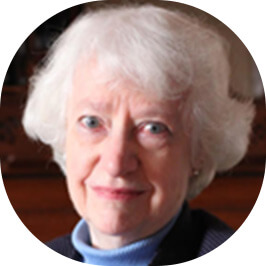 Margaret BentAll Souls, Oxford
Margaret BentAll Souls, OxfordLost Sounds and Recovered Music in the Late Middle Ages
AbstractAfter introductory remarks about the nature and limitations of notated music and its relationship to realisation in sound, I will outline the precarious survival of high-culture, composed music in the late Middle Ages, and how and to what extent it can be recovered, taking as a case study my reconstruction of a fragmentary royal English choirbook of the early 15th century.
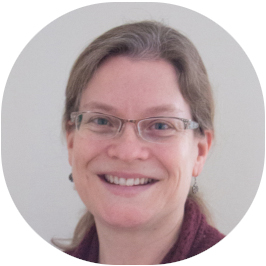 Debra LacosteWaterloo ON
Debra LacosteWaterloo ONMethods for Data Collection in the Cantus Database. The case of the missing rubrics
AbstractAmong the challenges faced by the creator of a Cantus Database manuscript inventory is the identification of the liturgical days, the saints’ feasts, or the genres of particular chants. Rubrics are often abbreviated, ambiguous, or missing. This paper will highlight several puzzling cases that our researchers have faced, and outline Cantus indexing procedures that are designed to increase findability and interoperability in large datasets devoted to medieval liturgical chant.
Watch the video abstract.
-
11:00am–11:15am
Coffee break
-
11:15am–12:45pm
 ChairSelena
ChairSelena
WisnomLeicesterSociety
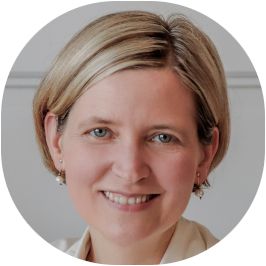 Diana MatutHalle
Diana MatutHalleSinging and Music-Making in Early Modern
Yiddish ManuscriptsAbstractFew manuscripts from the late medieval and early modern period have survived that provide information about the context of Yiddish song repertoires, performance practices, questions of gender, Jewish societal norms or attempted normativization regarding music making. This lecture will present Yiddish song manuscripts and explore them for their information on musical practices as well as employ secondary sources such as Yiddish works on ethics, customs and behavior to deepen our understanding of Early-Modern Jewish song cultures.
 Sam MirelmanSOAS
Sam MirelmanSOASVocal Register in the Recitation of Sumerian
PoetryAbstractVarious types of Sumerian poetic texts were recited in ancient Iraq, including laments, incantations and other text-types. Each genre of text was recited in a specific vocal register, which ranged from speaking through to singing. These differences in vocal register are made explicit by the ritual instructions which accompany each genre. The question which I will be addressing here is whether the vocal register in which a poetic text was delivered affected the poetic conception and structure of the text itself.
Watch the video abstract.
-
12:45pm–2:30pm
Lunch break (and preparation for the roundtable discussion)
-
2:30pm–3:30pm
Roundtable discussion
Host
institutions
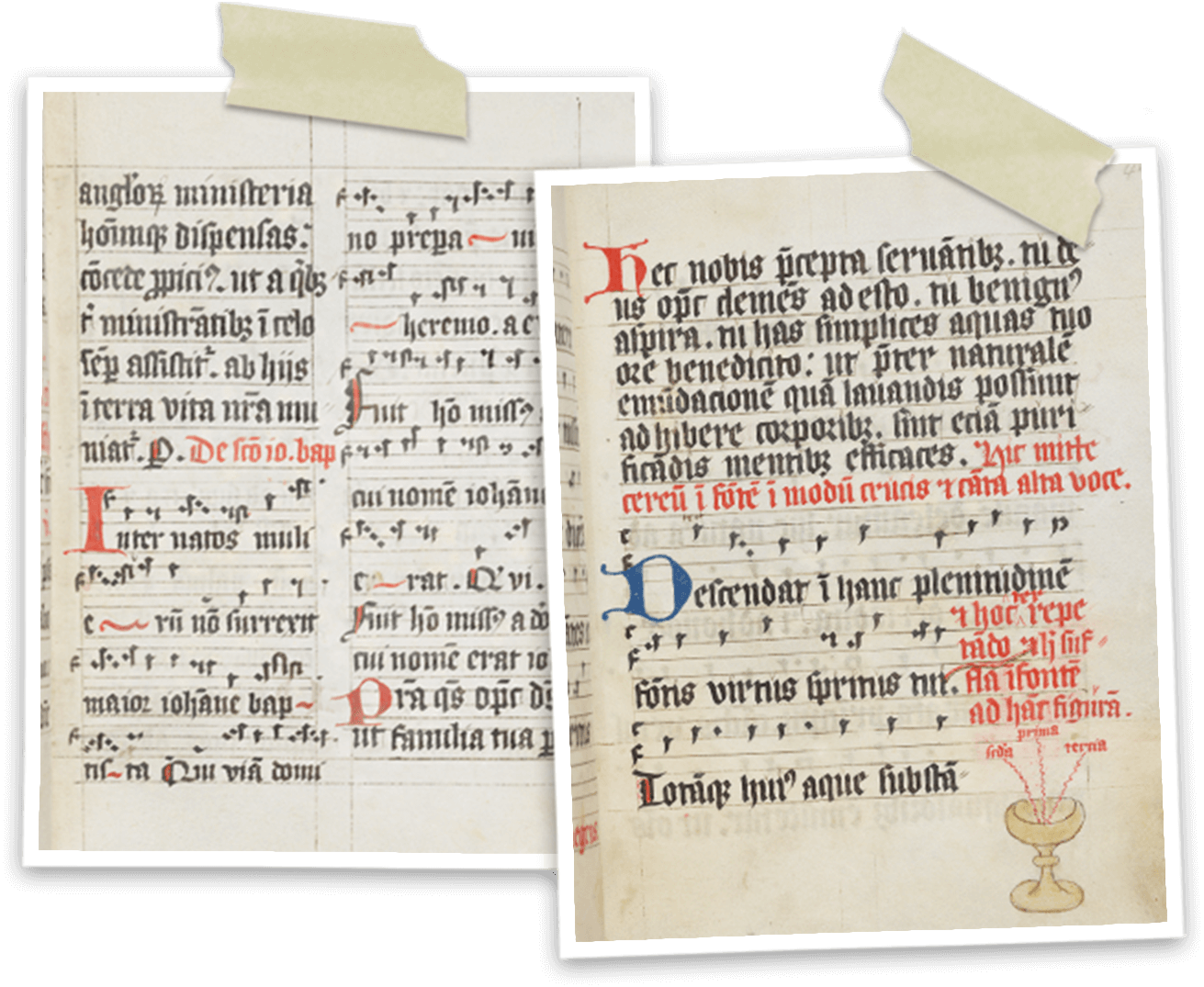
Established in 1341, The Queen's College prides itself in a long tradition of research of ancient cultures.
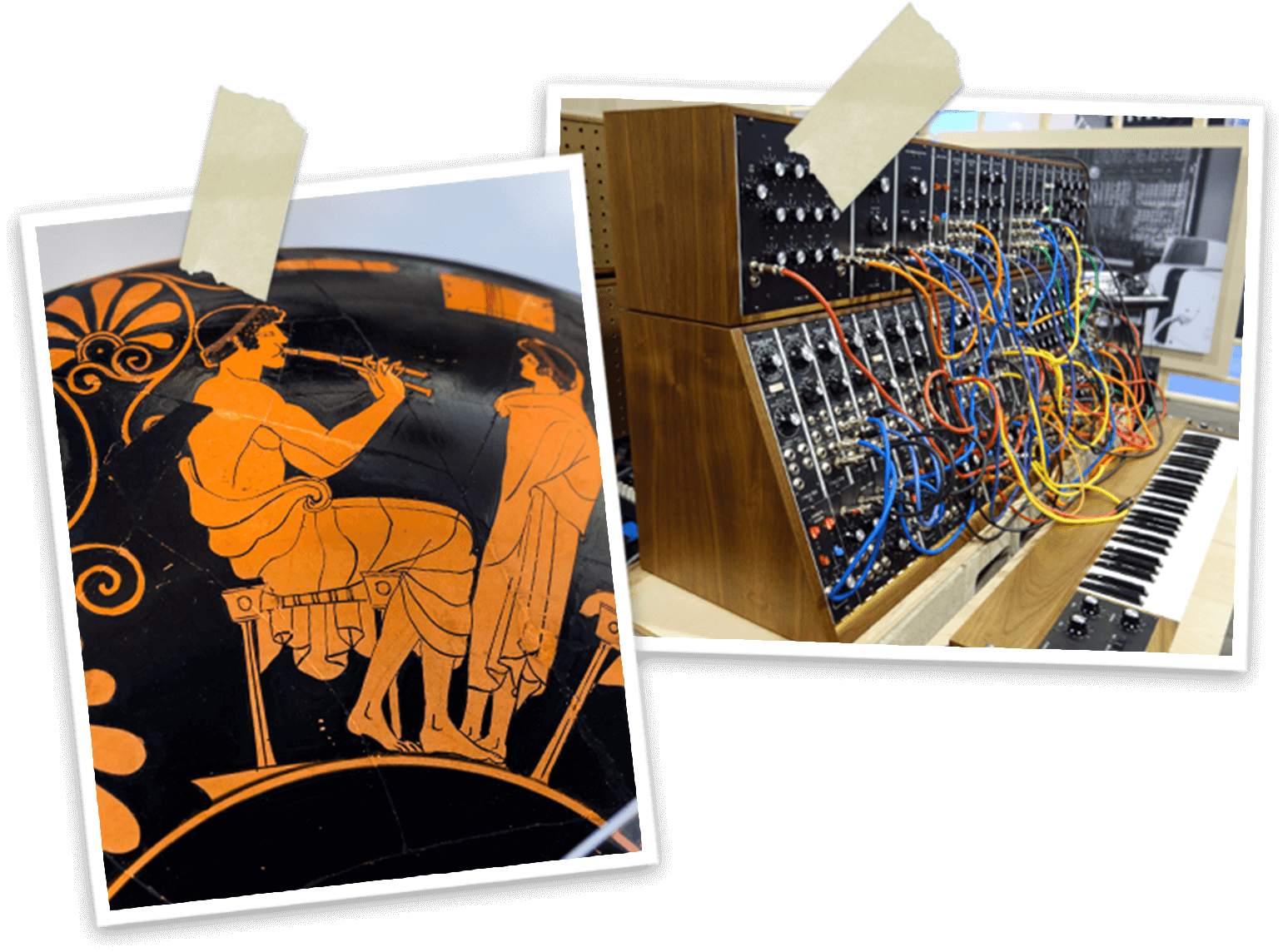
The Centre for Manuscript and Text Cultures is a research-focused group that advances cutting-edge studies of pre-modern manuscript and epigraphic traditions around the world.
Sign up
Please fill in the form to the right to book your place at the conference and receive links to the online conference sessions. If you have any additional questions, please send us an email.



